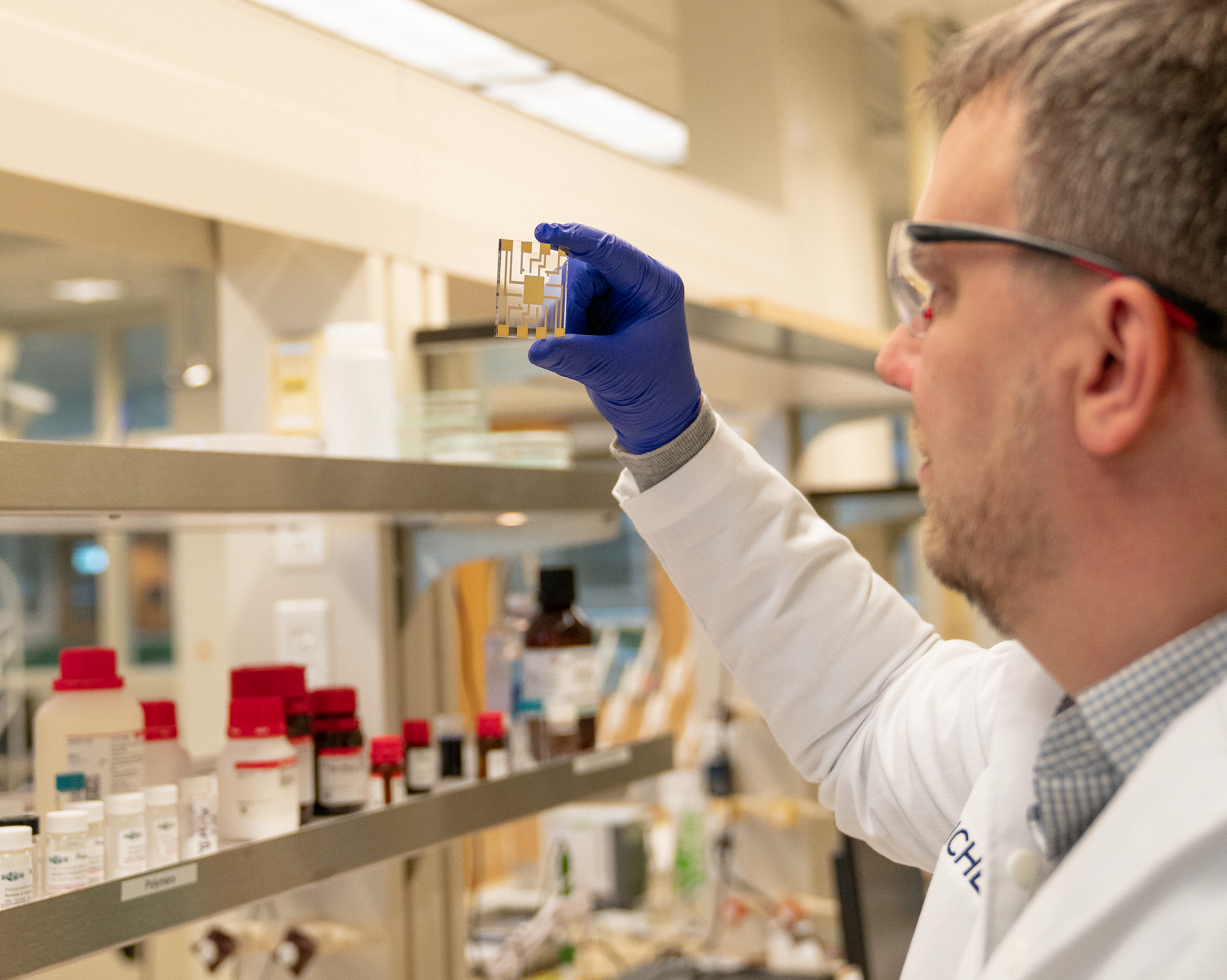
Mattiq has been awarded five government-backed grants in the last year, including two from the Department of Energy’s Small Business Innovation Research program, the Advanced Research Projects Agency-Energy (ARPA-E), the National Science Foundation, and most recently, the DOE’s High-Performance Computing for Energy Innovation (HPC4EI) program. The funding is furthering the development and application of our technology across a range of industries and use cases including clean hydrogen, fuel cells, biomass valorization, and other e-chemicals and fuels.
DOE High Performance Computing for Energy Innovation (HPC4EI)
Awarded project: High-performance computing meets high-throughput experimentation to optimize composition and crystal structure in CO2 reduction electrocatalysts
Mattiq joins prominent award recipients — including Baker Hughes, Boeing, Capra Biosciences, Capstone Green Energy, Carbon America, DDM, Ford Motor Company, and General Motors — of the Department of Energy’s HPC4EI grant program, which aims to harness the processing power of national laboratory supercomputers to decarbonize U.S. industry. In partnership with the National Energy Technology Laboratory (NETL), Mattiq will apply the grant funding to optimize composition and crystal structure in CO2 reduction electrocatalysts.
The lack of efficient and durable catalyst materials is a key bottleneck to selective electrochemical transformations that will enable cost-competitive chemicals and fuels derived from renewable resources. To overcome this, NETL will utilize its supercomputing resources to turbocharge the feedback loop between computation and Mattiq’s ultrahigh-throughput experimentation. This work is poised to rapidly accelerate the development of novel and efficient CO2 reduction electrocatalysts while significantly advancing our general understanding of electrocatalyst crystal structure – speeding up catalyst optimization for the next applications.
DOE Small Business Innovation Research (SBIR) – Two Awards
Mattiq’s work towards developing novel electrochemical processes that address the climate crisis is also currently being supported by two grants from the DOE’s Small Business Innovation Innovation Research (SBIR) program. This program was established specifically to support scientific excellence and technological innovation through the investment of federal research funds in critical American priorities to build a strong national economy.
Awarded project: High-throughput discovery and development of bifunctional and stable reversible fuel cell catalysts
Starting in August 2023, Mattiq will embark on a project to support the scale-up of the green hydrogen economy through reversible fuel cells (RFCs) innovation. RFCs can operate in both fuel cell mode (hydrogen to power) and electrolyzer mode (power to hydrogen) within a single device, offering a unique approach to long-duration energy storage.
While unitized RFCs will likely never displace discrete fuel cells and electrolyzers completely, their modularity allows them to fill many of the gaps that will arise as hydrogen plays an increasing role in our energy infrastructure. Yet, RFCs are not yet commercially viable due to a number of factors, primarily the performance of the bifunctional catalyst materials (those that can operate both as fuel cell and electrolyzer catalysts) required to operate an RFC. This project will show how Mattiq’s technology is capable of quickly changing the current paradigm through the development of novel bifunctional catalyst materials that can massively improve the commercial outlook of RFCs.
Awarded project: Generalizable electrocatalyst design framework combining multi-modal data and artificial intelligence
With a project that started in February 2023, Mattiq is advancing a conceptually new approach for uncovering the operating configuration of active sites on the surface of catalysts based on our proprietary ultra high-throughput experimental characterization of catalysts, computational modeling, and multi-modal machine learning. We have inverted the existing paradigm – which uses a simulation of a material’s structure to predict its function – and instead start with a catalyst’s functional data and reconstruct the surface structure of a catalyst from a pool of possible unit cells. This approach eliminates the need for prohibitively slow and expensive experimental structural analysis, enabling us to rapidly discover novel catalyst materials optimized to device architecture and electrochemical environment. Ultimately, this project will demonstrate how Mattiq’s technology can result in dramatically accelerated development and deployment of novel electrochemical processes that address the climate crisis.
National Science Foundation (NSF)
Awarded project: High-throughput nanocatalyst synthesis and screening for broad decarbonization
Another Mattiq project underway, with support from the National Science Foundation (NSF), enables the broad development of Mattiq’s patented high-throughput experimentation platform for the rapid development of novel electrocatalyst materials required for the sustainable production of e-chemicals and fuels. Electrocatalytic systems enable chemical processes to be driven by electricity and can be run on an increasingly clean electric grid, as opposed to fossil fuels.
The NSF funds solution-oriented research and innovation in a range of technology areas to address national and societal challenges of priority to the U.S. Administration and Congress.
Advanced Research Projects Agency – Energy (ARPA-E)
Awarded project: Discovery platform for low-Ir anode catalysts in PEM Electrolyzers
Mattiq’s work to identify and develop novel electrocatalyst materials for green hydrogen production is supported by a grant from the esteemed ARPA-E program. The goal of this work is to develop electrocatalysts that can match the activity and durability of pure iridium oxide for PEM electrolysis. Iridium is expensive and rare, so finding replacements for it will support the scale-up and commercial viability of hydrogen production to meet the needs of the clean economy.
With recognition and support from the U.S. government and scientific community, Mattiq is positioned as a leader in advanced materials discovery, supporting climate tech and electrocatalysis at scale.
Learn more about our solutions here.
